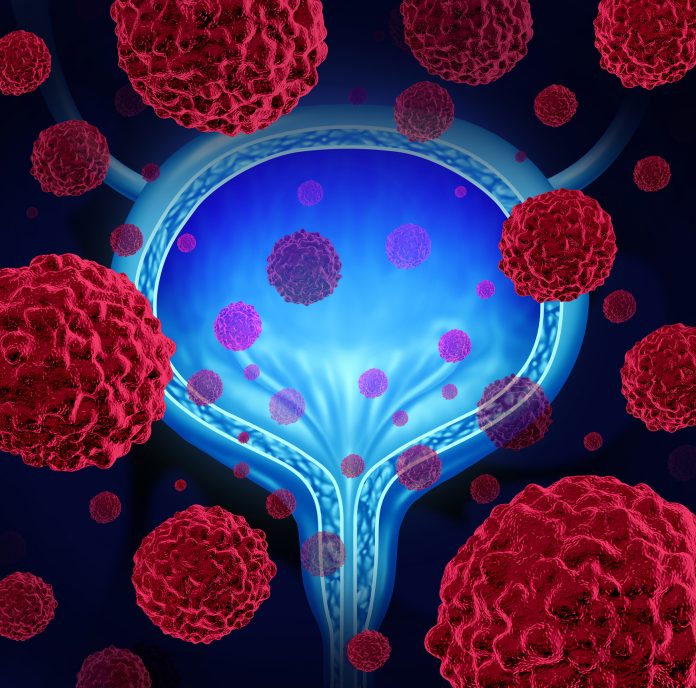
Adding the anti-inflammatory medication celecoxib to immunotherapy and standard chemotherapy drugs appears to suppress aggressive bladder tumor growth, according to a proof-of-concept study led by investigators from Cedars-Sinai Medical Center. The findings, made in laboratory mice, were published in Nature Communications.
Chemotherapy and immune checkpoint blockade therapy represent the two pillars of cancer drug treatment. But response rates have been limited to about 15-30% for various cancers, including bladder cancer. In fact, two Phase III trials—IMvigor130 and KEYNOTE-361—recently failed with the combination for bladder cancer. But in this study, the researchers believe they may have discovered why the combination of chemotherapy and immunotherapy often fails.
“We found that adding the anti-inflammatory drug celecoxib flipped chemo/immunotherapy into a treatment that demonstrates more durable response in muscle-invasive bladder cancer,” said study author Keith Syson Chan, Ph.D., of the department of pathology at Cedars-Sinai Medical Center. In earlier research, the team found that dying cancer cells release an inhibitory signal, or brake, that counteracts immunostimulatory ‘danger’ or ‘go’ signals, called damage-associated molecular patterns (DAMPs) to determine an effective immune response. In this study, Chan and colleagues found that by removing the brake, they can induce an effective immune response. “ Most investigators focus on pressing the go signal but not on the brake,” said Chan. “What we found is that if we remove the brake by an anti-inflammatory drug, we can tip the balance towards the ‘go’ signal and flip a switch to make cancer cells vulnerable to a killer T-cell response.”
This approach takes advantage of the most efficient form of drug-induced cancer cell death, known as immunogenic cell death. Mechanistically, chemotherapy induces ‘go’ signals that activate antigen-presenting cells called dendritic cells that in turn activate killer T cells to eradicate tumors. “The brake stops this pathway such that dendritic cells cannot mature and become available to prime killer T-cells,” explains first author Fotis Nikolo, PhD. “By removing the brake, chemotherapy sensitizes cancer cells towards immune checkpoint inhibitor therapy.”
Chan and colleagues also learned that most of the chemotherapy/immunotherapy non-responding tumors are so-called ‘cold’ tumors. “But we found that we could flip these tumors into ‘hot’ tumors,” added Chan. Instead of killer T-cells remaining stuck in the cell stroma area, addition of the anti-inflammatory drug allowed these killer T-cells to infiltrate into the tumor and kill tumor cells. “ The T-cells need contact with cancer cells to kill them,” he says. “Now they can come into the tumor; it is another mechanism how the anti-inflammatory drug is helping the efficacy of the chemo/immunotherapy combination.”
While this study was completed in mice, the team has data in human correlation studies involving pre-treatment tissue of cancer patients. When the brake signal was present in high levels in the pretreatment tissue, it correlated with a poor response to immune checkpoint blockade therapy.
“Our findings pose “iDAMP blockade” as the next-generation drug combination to be evaluated with chemoimmunotherapy clinically, by converting immune-excluded (or ‘cold’) tumors into T-cell inflamed (or ‘hot’) tumors,” the authors conclude in their paper. “And it is exciting to have an FDA-approved drug as part of the protocol,” noted Chan and Nikolo.
Moving ahead, the team plans on a clinical trial to assess the efficacy of the new treatment in early-phase human trials, including those for muscle-invasive bladder cancer, as well as pancreatic cancer.













